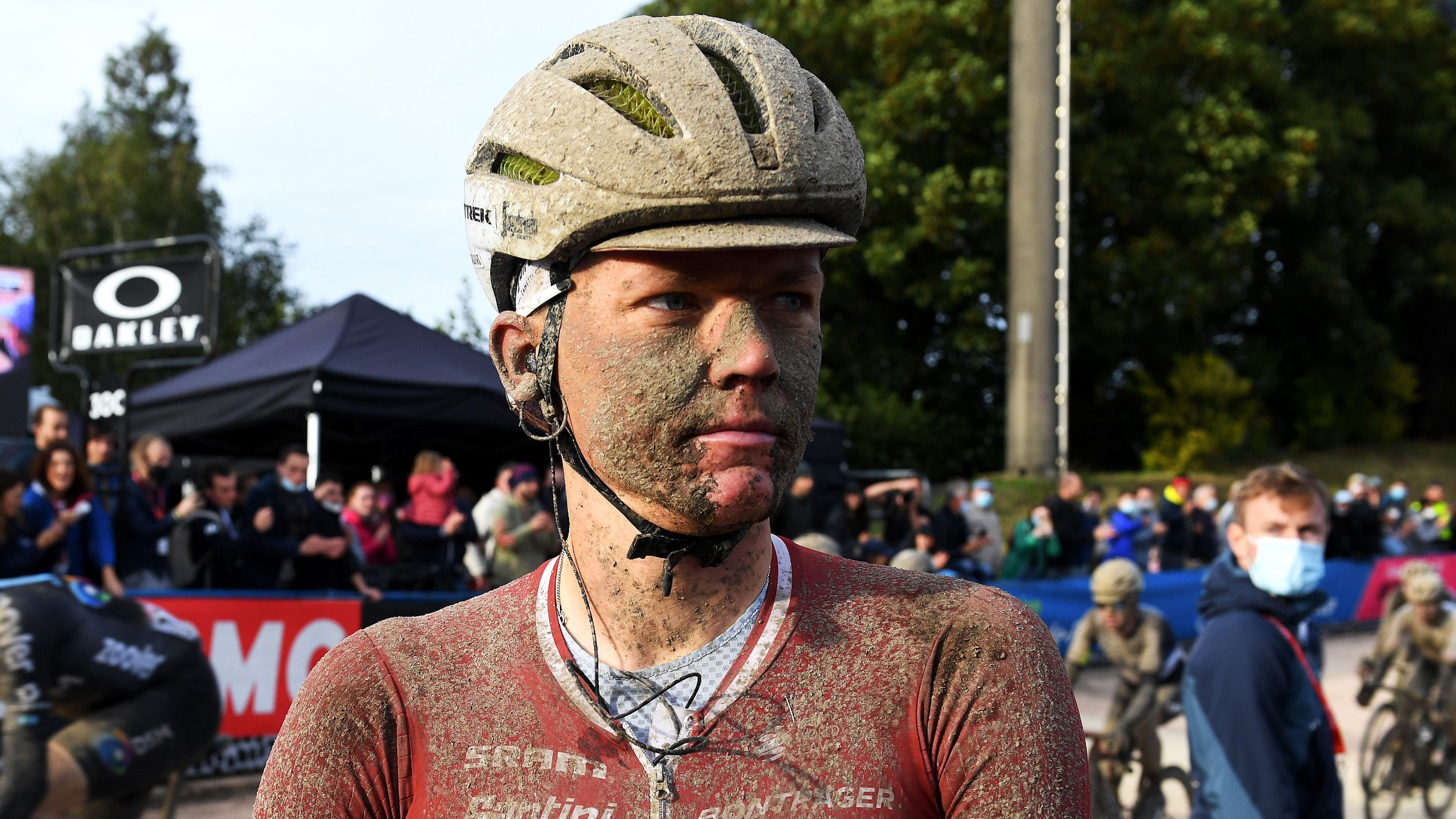Toms Skujiņš: ‘Some teams I’d never sign for because of their baggage’

ÉCHALLENS, Switzerland (VN) — Signing a contract at WorldTour level is never a straightforward process but having a set of principles always helps when it comes to guiding a rider’s decision-making process. For Toms Skujiņš that’s an important element in factoring which team to race for, and it’s part of the reason he’s raced on Trek-Segafredo for the last five years.
The 30-year-old endured an injury and illness-affected spring campaign but bounced back with a strong ride on stage 2 of the Tour de Romandie. He was in the day-long break and was only reeled in with around 20km to go. It’s a contract year for the Latvian all-rounder, and his initial desire is to remain with Trek but he’s also sure about some of the possible destinations that he wouldn’t consider.
Are they ethical decisions?
“Yeah for sure,” he told VeloNews after his day off the front of the peloton.
“I would not pick my salary coming from a place that’s sketchy.”
Part of Skujiņš rationale also comes down to trust. In 2020, a host of teams cut salaries unilaterally due to COVID, with some teams dialing back salaries by up to 40 percent. At the same time, Trek protected funds and ensured that riders and staff were paid their agreed wage. Skujiņš wouldn’t go into further detail or single out teams, but his comments were clear to those in the sport.
“Also I would say that I saw which teams can be trusted, and in 2020 which teams paid fully the salaries that they promised, versus which teams didn’t. Our sport is unpredictable as it is, so any kind of security that you can get is always nice. That’s one of the great things about this team. Trek the company is doing the right things, and not just for the men’s team but also the women’s team. And the staff and the company itself. It might seem stupid but that’s important to me.”
Skujiņš will still listen to rival teams should they show interest but he admits that Trek-Segafredo is a team in which he finds both happiness and respect.
“For sure I would like to stay. I’d talk to other teams as well to hear them out. Why not? But I enjoy riding for Trek as a team and all the brands that we have on board. There are some teams that I would never ride for, let’s say, because of what baggage comes with that. But with Trek, we have a great sponsor and even if I had to choose less money to stay I’d probably do that. That’s the truth. I’m honest.
“Every year is a big year for me. Every year I want to step up. Obviously, you’d not choose to have these mishaps in a contract year but at the same time, I don’t think that having a bad spring would suddenly make me a bad rider. So I’m not too worried about a contract yet but cycling is always a bit of a circus so you never know.”
Skujiņš is on the comeback trail, though, after a tough spring that saw him come down twice with illness and then crash at Dwars doors Vlaanderen. He’s still feeling the effects of that fall with a long-standing knee injury that will take time to resolve. There’s still some swelling and the ligaments aren’t perfect but he is optimistic about the coming few months.
On stage 2 in the Tour de Romandie he went on the attack with several riders, so there is a clear indication that his form and health are moving in the right direction. His top form will just have to develop over the coming weeks and months as he moves deeper into the season.
“There aren’t that many sprinters so we were hoping that they would look at each other a little bit,” he said of his day out in the break.
“I was never going to win the sprint so I might as well have tried. I feel like the legs are finally coming around a little bit compared to how they were most of the spring. In that regard I’m happy. I got what I could out of the stage.”
“I got sick a couple of times and my knee is still swollen from a crash so I’m still on the up. I got sick twice, once with COVID in February and then flu in March. Then in my first race back I crashed in Dwaars and hit my knee pretty badly. It wasn’t torn in half but I tore a bit of the PCL, which is the back ligament. It takes a long time for it to heal properly so I still feel it.
“It doesn’t bother me too much on the bike unless it’s really swollen, which it hasn’t been since Amstel Gold Race. Already, in Amstel, I felt pretty good but I had a shocker in Paris-Roubaix. I’m not sure what happened there. It was bad. It doesn’t happen often but I think that because of the inconsistent spring on and off all the time it was more than likely I’d have one of those days.”